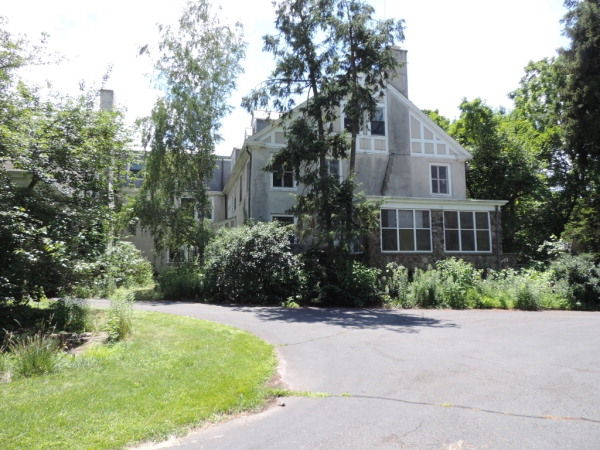By Gene Robbins, Managing Editor
Duke Farms had its right to demolish the former home of tobacco-fortune heiress Doris Duke upheld today, Friday.
Superior Court Judge Yolanda Ciccone rejected an opposition group’s request for a township commission to rehear the application that allows the demolition of Ms. Duke’s home within the 2,500-acre estate in northern Hillsborough.
She ruled the Hillsborough Preservation Commission “had adequate basis in fact and opinion to approve the demolition, and acted in conformity with the appropriate law” when approving Duke Farms’ application.
“It would be inappropriate for the court to substitute its own judgment of the evidence for the judgment of local citizens with an intimate knowledge of the community’s interest in preserving historic sites,” she wrote.
The judge heard final oral arguments Feb. 26 from a citizens’ group trying to stop the Duke Farms Foundation from razing the 65,000-square-foot building. Duke Farms applied in June for a demolition permit, and, after three hearings before the Historic Preservation Commission, ruled, 6-1, in October to allow the process to apply for the permit to proceed.
Duke Farms had been granted the permit, but was holding off the final demolition until the court case is decided. It has contracted with a company that has been “salvaging” items like mantels, fixtures and woodworking and selling them on the Internet.
DORIS, an acronym for Demolition Of Residence Is Senseless, brought the request to Judge Ciccone.
David Brook, the attorney for the objectors, said DORIS may seek emergent relief in appellate court as quickly as possible.
He called both the hearing process and court decision “troubling.”
“This opinion send a bad message,” he said. “I think there are sufficient errors (in the process) to go around and those errors were not seen by the court.
“I can begin to understand why people begin to feel cynical whether governing serving interests of the people,” he said.
Before courts closed Friday, he said, he filed a request to continue Judge Ciccone’s stay until an appellate court determines if it is appropriate.
The judge ruled that DORIS failed to show the commission acted in an “arbitrary, capricious or unreasonable” manner, and that there was “ample evidence” of positive and negative criteria supporting the commission in allowing the demolition.
Judge Ciccone ruled that testimony from historic architecture expert Emily Cooperman and Duke Farms Executive Director Michael Catania met the ordinance’s seven criteria to allow a demolition in a historic area.
She rejected claims of conflict of interest against board members, including that one was sleeping.
She dismissed the motion that the Oct. 29 meeting, when the memorializing resolution was passed, was illegal because it didn’t have a period for public comment. All that meeting was called to do was memorialize the resolution, she said.
The decision to limit public comment in the Oct. 15 meeting and limit it on Oct. 29 didn’t violate Open Public Meeting Law, she said.
She also rejected the argument the historic commission hearing process was “preordained” and “a sham proceeding” that was “driven by politics and money.”
The judge rejected a central request by DORIS to insert into the record a National Park Service official’s opinion that the house has historical significance.
If the Historic Preservation Commission had heard the testimony of William Bolger, National Landmarks Program Manager of the National Park Service, it might have come to a different conclusion, argued David Brook, the attorney for DORIS.
The judge said DORIS had rested its case Sept. 24 before making the request at the next hearing on Oct. 15 to include Mr. Bolger’s letter in the record, and that the DORIS expert (Mary Delaney Krugman) had said “inspection of the residence was not required for her to issue an evaluation.”
Duke Farms’ attorney Jeffrey T. LaRosa told the judge Feb. 26 that the house was not the Duke Mansion that owner James Buchannan Duke (Doris Duke’s father) had envisioned (a larger home was started elsewhere on the property, but abandoned, and its foundation is now a place to visit on the estate).
Mr. Duke had bought a Civil War-era farmhouse in 1893 and expanded and renovated it several times over the decades. Duke Farms’ historical expert Emily Cooperman testified that the overlapping and even contradictory work made the house an architectural “pastiche” with little significance.

